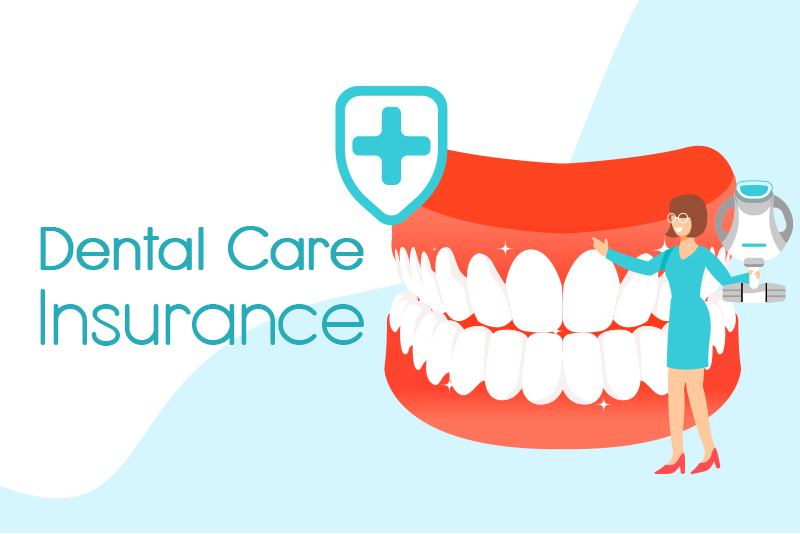Dentists often use specific terminology to describe the parts of the mouth, dental problems, and procedures. Being a leading provider of dental insurance verification services, OSI has prepared a dental care and insurance terms glossary, which is a collection of key terms and definitions related to dental care and insurance. This blog is a useful resource for individuals who are new to dental insurance and seeking to better understand the terminology and concepts involved. It provides clear explanations of various dental procedures, insurance concepts, and policy provisions, including deductibles, co-payments, contracted rates, and extensions of benefits.
Looking to streamline your dental insurance verification process and increase your revenue?
Contact us today and let our dental billing company handle the tedious tasks for you!
List of Important Dental Care and Insurance Terms
Abutment Crown: See Crown/Abutment Crown.
Accepted Fee: When a dentist agrees to accept payment from an insurer as full compensation for a service provided, this agreed-upon amount is known as the accepted fee.
Alternate Benefit: Alternate Benefit or “Least Expensive Alternate Treatment Clause (LEAT)”, states that certain dental plans require that specific dental procedures be substituted with less costly alternatives. Although patients can still choose the more expensive treatment, they will only be reimbursed for the amount of a procedure that fulfills two criteria: it must be less expensive and serve the same function.
Allowable Amount: Also referred to as maximum allowable, approved charge, or reasonable charge, allowable amount refers to the highest price for services covered by an insurance company.
Appeal: An appeal is a formal request for reconsideration and reprocessing of a dental claim that has already been processed by the insurance company.
Benefit Summary: It provides a summary of the dental plan including coinsurance percentages, deductibles, non-covered services, and more.
Clenching: Teeth grinding and clenching or bruxism is a condition in which the patient grinds, gnashes or clenches the teeth. It can cause the teeth to crack, loosen, and even fall out.
Co-payment or Co-pay: A co-payment, also known as co-pay, is a type of cost-sharing where a fixed amount of money is paid for a particular service. This amount remains constant regardless of the fee charged by the doctor or hospital for the service.
Contracted Rates: Contracted Rates refer to the rates at which insurance companies compensate their network providers for services rendered. These rates are typically agreed upon through negotiations and are set forth in the contracts between the insurance providers and their in-network service providers.
Crown: A dental crown is a cap in the shape of a tooth that is used to repair a tooth that is decayed, fractured, weakened, or worn-down. Dentists may also use crowns to cover dental implants or teeth that have undergone root canal treatment. Different types of crowns are – Abutment crown, Anatomical crown and Clinical crown.
Deductible: A dental insurance deductible refers to the fixed amount of money that must be paid for covered dental services before the dental plan’s coverage begins. This deductible amount is renewed once every 12 months and is often based on the calendar year, as followed by most dental insurance providers.
Dental Assessment: Dental assessments or exams are beneficial in detecting oral health problems, such as tooth decay and gum disease, in their early stages. Additionally, these exams are useful in educating individuals about the most effective ways to maintain healthy teeth and gums.
Dental Implant: Dental implants are medical devices surgically implanted into the jawbone to enhance an individual’s ability to chew or improve his/her aesthetic appearance. They serve as a base for artificial teeth such as bridges, crowns, or dentures.
Extension of Benefits: An extension of eligibility for benefits is a provision that allows for the continuation of coverage for covered services beyond the expiration date. It ensures the completion of treatments that were started before the policy expired. The duration of the extension is generally expressed in terms of days.
Flexible Spending Account: Flexible Spending Accounts (FSAs) are a type of account that enables employees to receive reimbursement for a range of medical expenses. These accounts are treated as tax-exempt savings accounts, as the contributions are not subject to employment or federal income taxes.
Health Savings Account (HSA): A Health Savings Account (HSA) is a savings account designed for individuals who have high-deductible health plans. The account enables them to set aside funds to cover medical expenses that are not covered by their health plans.
Non-duplication of Benefits: A non-duplication of benefits rule occurs when patients have two insurance plans. Here, the secondary carrier pays only the difference between what the primary carrier actually paid and what the secondary carrier would have paid if it had been the primary carrier.
Open Enrollment/Open Enrollment Period: An open enrollment period is a specific timeframe that occurs annually, typically in the fall, during which individuals can enroll in dental insurance, modify their existing plan, or cancel their plan altogether.
Out-of-network benefits: Out-of-network benefits refers to coverage for services obtained from healthcare providers who are not contracted with a particular dental plan.
Predetermination: Predetermination is a process in which a dentist submits a proposed treatment plan to the payer for review before initiating treatment. This process provides an estimate of the amount the patient can expect to owe, but it does not guarantee payment.
Pre-existing condition: A pre-existing condition refers to a dental condition that patients had or were diagnosed with before enrolling in their dental insurance plan.
Retrograde filling: If root canal therapy proves ineffective, an alternative option to salvage the tooth is a retrograde filling, which involves the creation of a flap in the gum by the dentist and the establishment of a hole in the bone to gain entry to the root’s bottom end.
Root canal therapy: Root canal therapy is a dental procedure to address infections that occur at the core of a tooth. This treatment is typically not painful and can preserve a tooth that would otherwise need to be extracted entirely.
Schedule of benefits: Schedule of benefits is a comprehensive list of dental services, including the highest amounts an insurer is willing to pay for each service.
Usual, Customary and Reasonable (UCR): The term UCR denotes fee guidelines that dictate the payment of claims. In such programs, individuals can choose a preferred dentist, and the latter is remunerated based on the conventional “fee-for-service” model. The employer remits monthly premiums to the insurance company.
This glossary aims to assist individuals in understanding the terminology associated with dental care and insurance, making it easier for them to navigate their dental health needs and insurance coverage.
Looking for accurate and reliable dental insurance verification services? The OSI team can help to verify patient eligibility!
Call us at (800) 670 2809 Ask for our Free Trial.





![Dental Insurance Verification: Best Practices for Success [Updated for 2025]](https://www.outsourcestrategies.com/wp-content/uploads/2024/11/dental-insurance-verification-best-practices-for-success-400x250.jpg)
